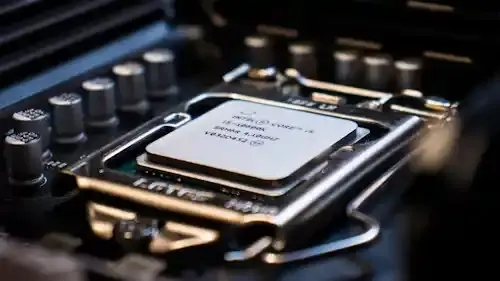Jobs that will disappear and others that are needed due to artificial intelligence

The world is changing at an accelerated pace, and the driver of these changes is technology, especially artificial intelligence. This complex technique that learns and improves on its own invades all fields.
Show key points
- Artificial intelligence is rapidly transforming the world, reshaping industries and threatening jobs that rely on routine, repetitive tasks.
- Many professions such as data entry, driving, and basic customer service are at high risk of automation due to advancements in machine learning technologies.
- AI has now reached a level where it can perform not only physical labor but also complex data analysis, translation, financial reporting, and content creation.
- ADVERTISEMENT
- While AI may render some traditional roles obsolete, it will simultaneously give rise to new career paths that require creativity, critical thinking, and emotional intelligence.
- Jobs in AI development, systems maintenance, ethics, data science, and cybersecurity will become increasingly essential in the new economy.
- Adapting to this AI-driven future requires individuals to embrace continuous learning, reduce dependence on outdated skills, and collaborate effectively with intelligent systems.
- Governments and educational systems must urgently revamp training and curricula to prepare the workforce for AI-related careers and ensure a smooth societal transition.
The AI revolution is ravaging the world, leaving behind a wave of changes that are reshaping every aspect of our lives, including the labor market. While these technologies create promising new opportunities, they also cast a shadow over the future of some professions that may be in danger of disappearing in the long and short term, raising a pressing question: what is the fate of the professions that AI can do?
Artificial intelligence and functionality: Will machines replace us?
Recommend
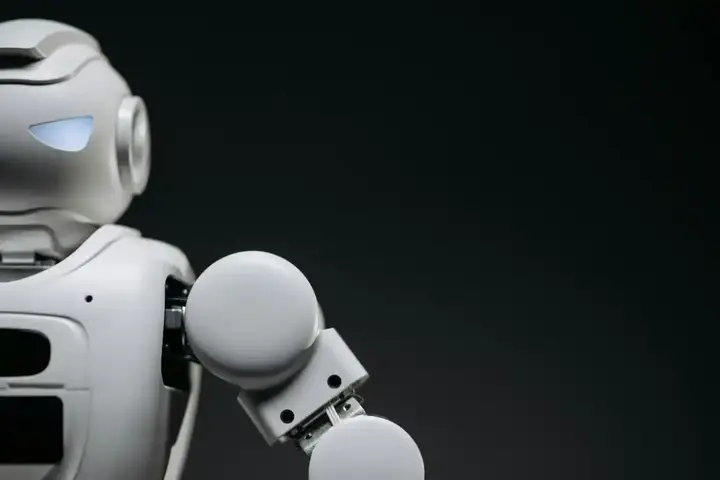
Artificial intelligence is a new industrial revolution hitting our world, as machine learning systems penetrate areas previously unthinkable and automate tasks at an accelerated pace. With this progress, one must ask: Will machines replace us in life? And what is the fate of human jobs in light of this growing intelligence?
AI represents a real threat to some jobs, especially those that are routine and involve repetitive and predictable tasks. For example, automated programs can now bank transactions, book flights, write financial reports, and even craft simple news – functions previously performed only by humans. While some estimate that 47% of existing traditional jobs could disappear due to AI over the next two decades, others argue that its impact will not be of this magnitude, and that new job opportunities will be created that did not exist before.
In fact, there are a number of jobs that face a high probability of disappearing or radically transforming due to artificial intelligence. In anticipation of the future, we try to list these jobs and areas to avoid an unforeseen fate, and to advance the coexistence and development required for a better future for human workers.
1. Routine and stereotypical functions - robotics and artificial intelligence
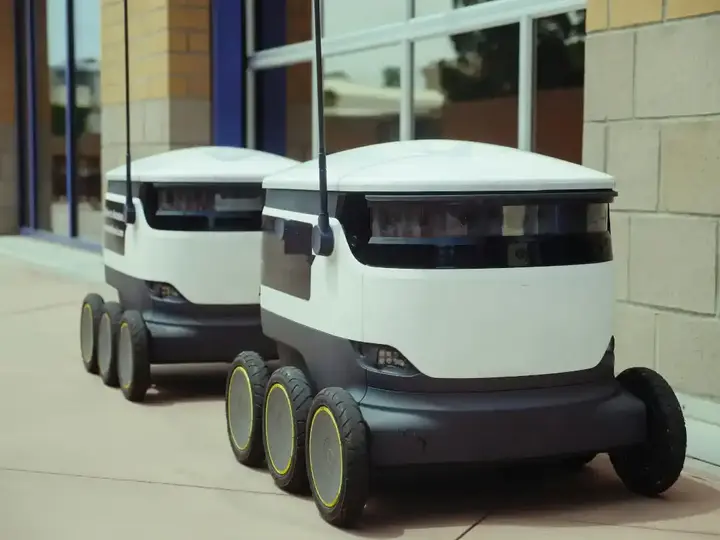
Repetitive and profilable tasks are the easiest prey for AI. Businesses such as data entry, simple logistics, and some factory businesses can be replaced by machines powered by intelligent software, threatening the job prospects of many. The easiest and simplest ways to learn machine or smart software are those that rely on repetitive processes, and smooth or even complex scenarios that can be easily learned. This gives great proportions in avoiding human errors, as well as smoothness and speed of performance. These are standards that are always in demand in the business world.
For simplicity, we can say, that is, works that involve repeating simple tasks and require a little creativity or critical thinking. These include, but are not limited to:
● Production line workers: Robots can perform assembly and packaging tasks more accurately and quickly than humans, which can dispense with many humans in these jobs, and become subject to complete replacement.
● Construction and factory workers: Robotics companies are developing robots that are more capable of carrying out various construction and manufacturing tasks, threatening these jobs that rely on hard physical labor.
● Agricultural and harvesting workers: Drones and automated agricultural machinery can perform farming, irrigation and harvesting tasks more accurately and effectively than humans, which can lead to the layoffs of a large number of agricultural workers.
● Drivers' jobs such as taxi drivers and transport vehicles: Self-driving cars are evolving rapidly, and despite legal and technical challenges, they are likely to replace taxi drivers and public transport services in the near future. Autonomous driving is one of the most promising applications of artificial intelligence, which threatens the future of all these professions significantly.
A significant decline in these occupations is expected overall over the next ten years.
2. Jobs that will disappear due to artificial intelligence as a result of skills that can be taught to machines
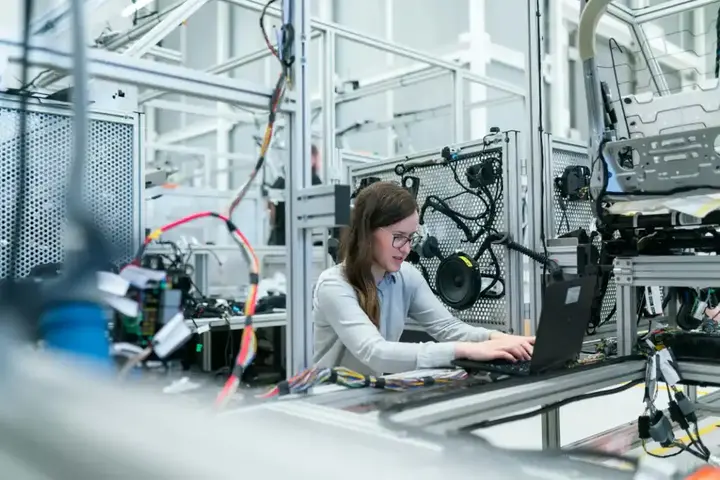
Artificial intelligence has achieved great success in continuous learning with many jobs that require skills from simple to advanced level. It is expected that there are several jobs in the world that will be raided by smart machines and applications:
● Accountants and financial analysts: Smart software can now analyze financial data and make accurate investment recommendations, reducing the need for human professionals in some tasks.
● Interpreters: As machine language translation technologies evolve, interpreter services may become less in demand in the future.
● Data Entry + Classification Functions for Data Collection: With AI software capable of reading and processing data very quickly and accurately, the need for functions that rely on manually entering and classifying information will disappear.
● Information investigators: Thanks to AI's ability to process vast amounts of data at breakneck speed, companies' need for these manual tasks will shrink.
● Customer service staff: Chatbots are already replacing humans in answering common questions and providing basic customer support, without the need for traditional customer service staff. Smart chatbots are able to answer questions, manage reservations, and solve minor problems, reducing the need for human staff in call centers.
● Proofreaders: Proofreading programs have never been more accurate than these days. And there's a development coming for the better! Such applications now do work that requires hours in minutes and maybe less. However, creative proofreading may require a lot of time to reach the quality of an expert human mind.
● Simple retail and service functions: AI software can analyze purchasing patterns, provide personalized recommendations to customers, and can effectively manage inventory, which can reduce the number of employees required in stores.
3. Threatened managerial and creative jobs
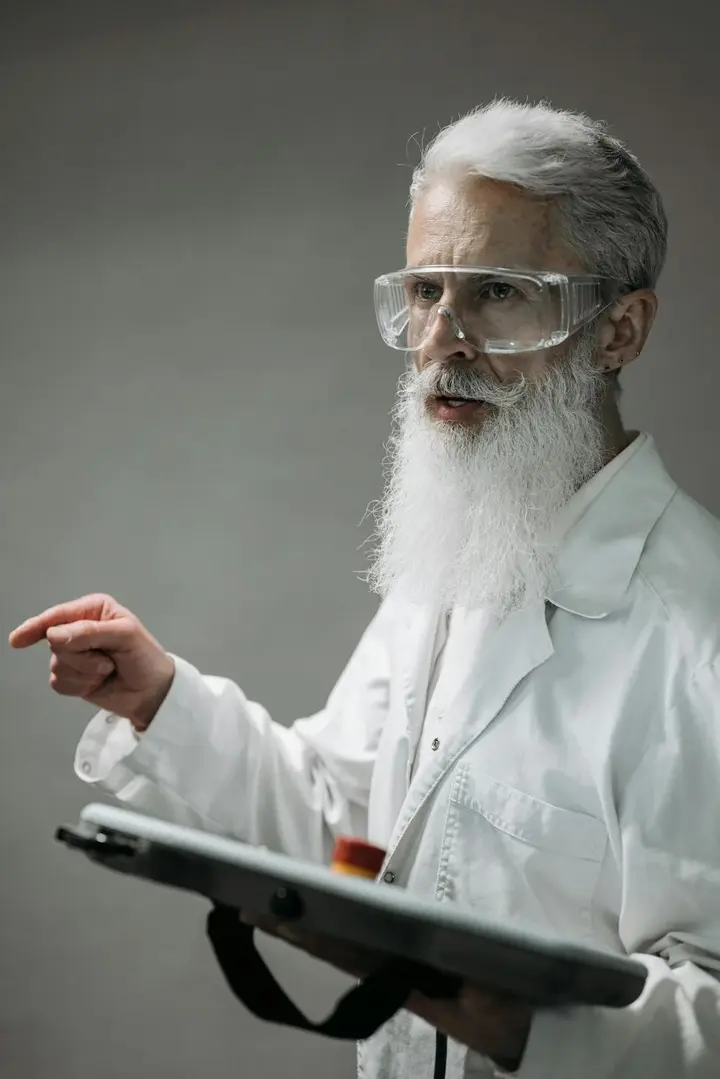
The use of AI is growing all the time through development and learning, so even jobs that require a significant amount of thinking and human intelligence are also vulnerable to replacement.
● Some administrative and analytical functions: AI software is constantly improving at data analysis and forecasting results, which may lead to the replacement of financial analysts and some traditional accountants in the future.
● Simple creative works: routine content writing, traditional basic graphic design, and some types of translation, especially routine translation, may also be affected by artificial intelligence, especially with the development of machine creativity tools.
These are just examples, and the list goes on. But does this mean the end of human jobs in the coming years? Of course not! History tells us that technological progress creates new opportunities as much as it eliminates others. The new professions that will arise thanks to artificial intelligence require different skills related to creativity, critical thinking, social intelligence, and human relationships. Focusing on these skills, and preparing to adapt to changing job market demands, ensures you stay afloat even in the midst of the wave of AI.
What skills are most required to keep up with AI?

There is no need to fear AI, it is our partner in the journey of progress, we just have to prepare to steer it towards a better future, where man and machine thrive together.
While AI raises concerns about machines replacing human jobs, it also creates an exciting array of new career opportunities. Complex AI systems require specialized human support in a variety of fields, giving rise to careers we never dreamed of before.
Talk of the threat is not to despair, as the transformation brought about by artificial intelligence will create promising new opportunities as well. The need for the following will increase:
● Advanced data analysis and processing skills: Experts in data analysis will play a pivotal role in extracting meaning from the vast amount of data that AI systems will collect, and employ it in decision-making and process optimization.
● AI systems development and maintenance skills: The world will need an army of developers and engineers to design, build and maintain complex AI systems.
● Advanced creativity and innovation skills: With routine tasks left to machines, humans will be freed to focus on tasks that require creativity, innovation and critical thinking, and innovators and entrepreneurs will be in great demand in new areas that will arise thanks to artificial intelligence.
● Machine handling and integration skills: All employees, regardless of their industry, will have to adapt to the presence of AI and learn to collaborate effectively with it to achieve maximum productivity.
What jobs are required in the age of artificial intelligence?

Although there is great concern for many, there are wide areas that this new industrial revolution will generate, and there is a vast list of jobs related to the new era, some of which already exist, and we will mention the extent of development and renewal of those jobs:
● Data Scientists: To extract valuable meanings and patterns from data and turn them into actionable insights.
● Data engineers: to build the data infrastructure needed to store and process the vast amount of data.
● Artificial intelligence engineers: to design, build and train various AI systems.
● AI ethics experts: to ensure that AI systems comply with ethical values and are used responsibly.
● AI security specialists: to protect AI systems from cyberattacks and malicious use.
● Innovators and entrepreneurs: to develop new applications and technologies powered by artificial intelligence.
● Artists and designers: to create content and interactive experiences enhanced by AI technologies.
● Writers and journalists: to interpret data and insights produced by AI systems and turn them into engaging stories and articles.
● Project Managers: To lead teams that combine human experts and intelligent systems to achieve common goals.
● Teachers and mentors: to train and prepare the workforce to adapt to the changing world of work dominated by artificial intelligence.
● Communication experts: to explain how AI systems work to the general public and build trust in these technologies.
● UX/UI designers: to create intuitive and easy-to-use interfaces for AI-powered products and services.
● Legal experts: to navigate the complex legal and ethical issues surrounding AI, including intellectual property, liability and privacy.
● Healthcare professionals: Collaborate with AI engineers and data scientists to develop and deploy AI solutions that improve patient care, diagnosis, and treatment outcomes.
● Ecologists: To harness AI techniques to monitor and analyze environmental data to better understand and mitigate climate change and natural disasters.
● Financial Analysts: To leverage AI systems to analyze market trends, make investment decisions, and manage risk in the financial industry.
● Supply chain managers: to optimize logistics and supply chain processes using AI techniques to improve efficiency and reduce costs.
● Sociologists: to study the impact of AI on society and human behavior, including impacts on employment, inequality and decision-making.
● Law enforcement and security professionals: Use AI tools for surveillance, predictive policing, and threat detection to enhance public safety and national security.
What steps should be taken to prepare for future careers?

● Lifelong learning: As the field of AI evolves rapidly, it is essential to commit to continuous learning and acquire new skills as modern as possible.
● Emphasis on critical thinking skills: Unique human skills such as creativity, critical thinking, and empathy will still be in great demand in the age of artificial intelligence.
● Willingness to collaborate with machines: We must be ready to work naturally with these new smart software and machines, it is not limited to mechanized development alone, but we can simply say that we are entering an era where humans are working with intelligent machines faster and more.
● Reduce the acquisition of traditional and routine skills: Technology in general always contributes to reducing routine work, and this new wave has already solved many jobs. The bottom line is not to focus on such skills.
With this rapid transformation, governments and educational institutions must prepare for the future by restructuring education and training programs: to equip the workforce with the skills needed in the age of artificial intelligence, emphasis should be placed on data analysis, programming, critical thinking, creativity, and lifelong learning. Build social safety nets so that retraining programs must be provided and career transition supported.
![]()
Our cosmic neighborhood may be ten times larger than we thought.
A massive discovery suggests our Milky Way may belong to a cosmic structure far bigger than we thought—possibly ten times larger than the Laniakea supercluster. Galaxies travel like rivers in a gravity basin, flowing toward the enormous Shapley concentration, challenging everything we thought about the universe’s scale. more- ADVERTISEMENT
![]()
Surprising fact: The environmental impact of beef outweighs cars
Cows may seem innocent, but their burps and farts pack a punch—methane from cattle is 23 times stronger than CO₂ and causes major environmental harm. From deforestation to acid rain and massive emissions, beef production beats cars in damage. Eating less beef could seriously help the planet. more- ADVERTISEMENT
![]()
The best economical graphics cards for gaming and content creation - available in the Arab world
Looking for strong gaming and content creation performance on a budget? The NVIDIA GeForce GTX 1660 Super and RTX 3050 stand out for 1080p, while the AMD RX 6700 XT and NVIDIA RTX 3060 Ti shine at 1440p. Great value options packed with smooth performance and essential features like ray tracing. more- ADVERTISEMENT
![]()
At each moment, there are about 2,000 thunderstorms occurring on Earth.
Thunderstorms are powerful and common, with up to 2,000 happening worldwide at once. Florida tops the U.S. in stormy days, but Venezuela's Lake Maracaibo holds the lightning strike crown. When thunder roars, go inside—lightning is closer than you think and more dangerous than most realize. more- ADVERTISEMENT
![]()
The most important technical terms that everyone should know
Knowing technical terms isn’t always necessary—but if you want to dive deeper into tech or work in the field, it’s essential. Technologies like AI, IoT, VR, and 3D printing are transforming daily life, industry, and healthcare, bringing both exciting possibilities and challenges like privacy and security. more- ADVERTISEMENT
![]()
Success Guide - How to discover your passion?
Discovering your passion is a personal journey that brings meaning and joy to life. It’s about finding what excites you, motivates you, and makes you feel alive. With patience, reflection, and trying new experiences, you can uncover what truly inspires you without needing to spend a fortune. more- ADVERTISEMENT
![]()
The Rise of Civilization: How Bread Dough Shaped Human History
Bread dough began as a humble mix of grains and water but evolved into a symbol of civilization, shaping cultures and economies. From Egypt’s sacred loaves to modern artisan creations, it blends tradition with innovation, remaining a staple that connects humanity through time and taste. more- ADVERTISEMENT
![]()
The city of Rimini on the Adriatic coast with its Roman history
Rimini blends beachside charm with rich history—from ancient Roman arches to Renaissance castles. Wander through art-filled streets, savor local pasta and fish soups, and explore unique spots like the Jampalonga Library or Fellini's first home. By the sea or in town, Rimini never stops giving. more- ADVERTISEMENT
![]()
The concept of financial liberalization - how can you achieve it?
The Financial Freedom Concept - How can you achieve it more- ADVERTISEMENT
![]()
Habits that distinguish men from boys
Habits that distinguish men from boys more- ADVERTISEMENT














